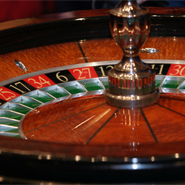Posted 16 July 2015
Tánaiste launches pioneering UCD study on the social impact of gambling in Ireland
A new report by UCD researchers explores gambling behaviour in Ireland, specifically the issue of problem gambling and its impact on the individual, their relationships with social connections, and the wider impact of problem gambling behaviour on community and society.
Often problem gambling is a behaviour conducted in secret, becoming known to the gambler’s social network only when negative financial and social difficulties arise. With the addition of casino, mobile phone and Internet gambling to the more traditional forms of gambling (e.g., lotteries, scratch card tickets, horse and dog racing, bookmakers’ shops, etc.), gambling opportunities, both publicly and covertly, can be easily accessed.
According to the study findings, problem gambling can lead to complete social breakdown, with devastating financial losses, property losses, and alienation of family and friends.
“I am very concerned about the social impact of gambling, given that we have a gambling culture in Ireland. Gambling pervades many aspects of Irish life, particularly sporting events. The negative effects on young people growing up in this gambling culture are a particular worry,” said An Tánaiste and the Minister for Social Protection, Joan Burton TD who launched the report findings.
“One of the most profound impacts of problem gambling is on families who have to cope with the devastation and stress, compounded by having to deal with serious financial problems. Another alarming finding that the study highlights is the connection between problem gambling and people gambling at a young age,” continued An Tánaiste.
The gamblers (22) interviewed for this study were all recovering from problems with gambling.
“They often described their gambling behaviour as something they felt drawn to or compelled to do. They frequently spoke of the buzz associated with gambling. They also noted the need to rationalise their gambling behaviour, to explain away losses and unpaid bills, and to control the people and environment around them so that they could continue to gamble. They acknowledged the selfishness of their behaviour,” said Dr Crystal Fulton from the UCD School of Information and Library Studies, University College Dublin, who headed-up the study.
Almost all the social connections of the gamblers interviewed for the study mentioned the smart phone as a favourite tool used by the problem gambler they knew, and they believe that advanced technologies like these have deepened the impact of gambling. Family and friends of problem gamblers also believe that the smart phone facilitates covert gambling. Of all gambling forms, the online environment was perceived as a gateway to secret, hidden gambling activities.
According to Dr Fulton, as a problem with gambling progressed or became evident, family and friends described the gambler as becoming agitated, erratic, moody, secretive, and uninterested in daily life, family, or taking care of themselves.
“Addiction Service Providers reported that by the time a gambler or social connection requested help, the gambler and their family were nearly always in crisis. Money would usually be depleted. Marriages would have been broken to some degree.
Connections with friends may have been severed by the gambler’s requests to borrow money. Trust levels among family and friends might be very low or non‐existent for gamblers,” continues Dr Fulton.
In the study, Addiction Service Providers reported ages from nine years and up as common starting points for gambling. Gamblers in this study frequently noted being present at gambling events and establishments as adolescents or teenagers, often attending the gambling event or establishment with a family member or friend. Many also began to gamble when they were young, starting as under‐aged or between their teens and early twenties. Initial gambling participation might involve betting for pennies, e.g., on card games, coin tossing, the “odd pound” in a poker machine, placing bets for a relative, a flutter on the Grand National horse race, etc. Because problem gamblers often ask for help in their late thirties to early forties, they may have spent a significant amount of time gambling before they seek treatment.
The findings of the report, Playing Social Roulette: The Impact of Gambling on Individuals and Society in Ireland, suggest that development of a regulatory framework and a social policy framework is urgently needed and a national strategy for service provision is essential.
The study was funded by the Irish Research Council with the support of the Department of Social Protection.
(Produced by UCD University Relations)

